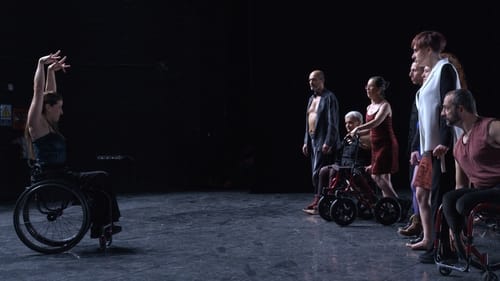
Producer
When he sees members of the audience crying while he’s performing his dance, Xavi is a bit disappointed. If they’re crying because they’re moved by his dancing as an art form, that’s fine. But if it’s out of pity because he’s in a wheelchair, they can “fuck off.” A similar attitude can be detected in Jos de Putter and Clara van Gool’s portrait of the Catalan dance collective Liant la Troca, whose members include people with a physical disability. One by one, they spotlight some of these intriguing personalities.

Producer
Every love, no matter how happy, sooner or later ends unhappily; either due to loss, due to death, or due to a broken bond. These are all sides of the same medal. Why do we love others if love can hurt us so much? Wouldn’t it be safer not to love? In this documentary, several people who have been profoundly confronted with love and death in their lives, provide glimpses of the enigma of love, based on their personal stories. On Freud’s famous couch, they are questioned about their experiences. Their stories are interwoven with timeless works from the history of painting and music. When words are not adequate, there is art and music.

Producer

Producer

Producer
In an as stirring as hopeful music story Dj Robert Soko, who came to fame with his Balkan Beats, embraces musical influences from newcomers in multicultural Europe.

Producer
Based on the struggle of young people in Goma (Northeastern Congo) against the prevailing Western reporting about war and misery, Stop Filming Us investigates how these Western stereotypes are the result of a skewed balance of power. Stop Filming Us creates a cinematic dialogue between Western perceptions and the Congolese experience of reality. While the Congolese perspective becomes increasingly clearer in the film, questions arise about the perspective of the film itself; is a white director able to make a film about the new Congolese image or is it primarily a story created by his own Western perspective?

Producer
As teenagers, they decided to fight for FARC. Now that a peace agreement has been signed in Colombia, the children of Caldono return to their bombed village. The question is how the villagers will welcome them: with forgiveness or retaliation? Activist Farid Julicué dedicates himself to achieving reconciliation between the villagers and the former rebels.

Producer
"Everything in me said I had to do it." Martin de Vries decides, without any preparation worth mentioning, to walk the Camino, the famous pilgrims’ way to Santiago de Compostela. From Le Puy-en-Velay in central France to north-west Spain; a journey of 1,600 kilometres, taking almost 70 days. He films himself while walking – his feet, his shadow, the path, the fields and woods – and tries to get to the bottom of why he set out on this adventure.

Producer
Twenty homeless people, one opera. An Amsterdam based homeless choir is rehearsing an opera written for them. Who is setting the rules?

Producer

Producer
Since its release in 2005, Jan Siebelink's novel Kneeling on a Bed of Violets , dealing with his father's pitch-black Calvinism, has strongly stirred up - Christian - emotions across the nation. 'The book has become a phenomenon', the publisher said at the presentation of the 400,000th copy. Director Pieter Verhoeff follows Jan Siebelink on his jaunts along jam-packed libraries and churches, where readers hang on his lips. The eloquent Siebelink has a kind word for everybody: 'I feel they have the right to get acquainted with the author.' At home, ensconced in the intimacy of his living room, Siebelink explains his personal motives for writing the novel. His statements are illustrated by relevant passages from the book, drawn by artist Dick Matena and read out by actor Gijs Scholten van Aschat. This gradually provides insight in the novel and its writer, and describes the present-day leaning towards religion of many Dutch people.







